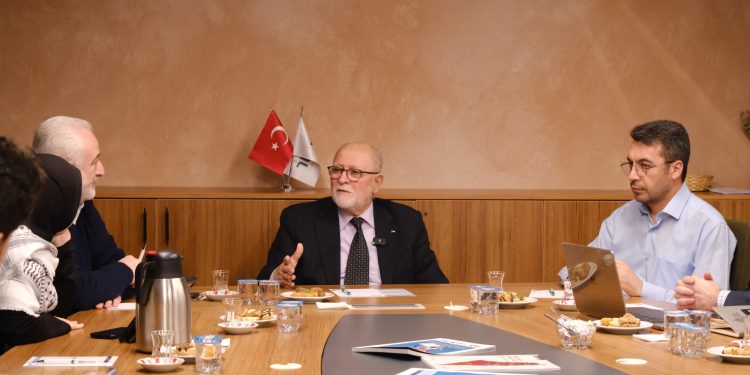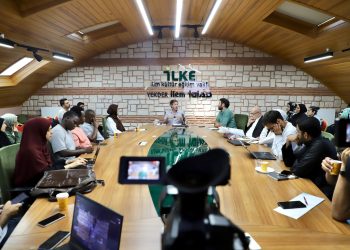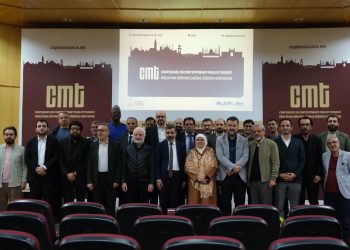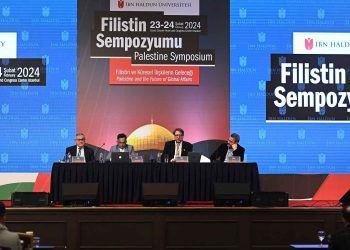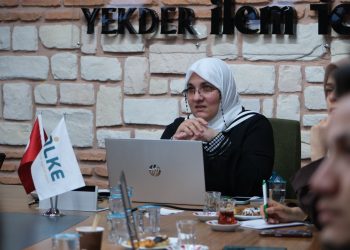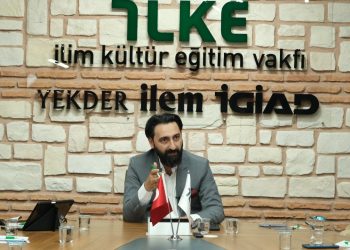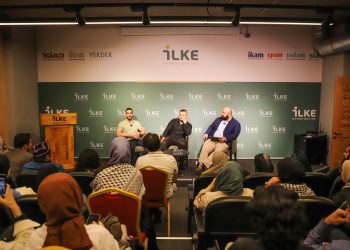On January 21, for the first session of our new roundtable discussion series, The Platform Talks, we were honored to host Palestinian academic and activist Dr. Azzam Tamimi. In this closed event, academics, journalists, and activists had a chance to engage in the discussion on Palestine with their questions and comments. Dr. Tamimi began the session by addressing the question, “Many of us initially thought that the Al-Aqsa Flood would conclude quickly, either in decisive success or failure. However, it has lasted far longer than anticipated, extending beyond a year. What, in your view, are the reasons that it lasted so long?” posed by the moderator. In his answer, he argued that this resistance was the first of its kind. In addition to their unwavering commitment to the resistance, he emphasized that the Palestinians remained steadfast in upholding the core principles that sparked their struggle. Yet, in stark contrast, Israel has found itself unable to realize any of its goals in this ongoing conflict.
Dr. Tamimi highlighted the crucial impact of Hamas’ education system, which has managed to attach Palestinians to the Quran. As a result of this education system that lasted about sixteen to seventeen years, a new generation has emerged who identify themselves as Muslim first, then anything else, and do not have fear of enemy or death. He underlined that the capacity of Palestinians to endure pain is much more than anyone can imagine. They have lost their houses, wives, children, and families; however, after everything, they say alhamdulillah. In this regard, their determination to resist was between winning or dying; they did not consider any other option. He also mentioned global uprisings and solidarity movements supporting Palestinians, describing these global movements not only as a sympathy for Palestinians but also as an anger against the current world order. He stated that the losses given in Palestine were very similar to the losses given by the Vietnamese, which paved the way for the withdrawal of the US from Vietnam. Dr. Tamimi also stated that the atmosphere created by Hamas in Gaza is very rare in the Arab world. The imperialist powers shared the lands within themselves and colonized the Arab world, which resulted in a colonized education system, the loss of freedom of speech, and an open prison. This prevented the people who sympathize with Palestinians in this region from even protests and donation campaigns for Gaza. He said without the corrosion of Arab governments, Israel could not do much; that’s why, he stated, he believes Palestine is not free until the Arabs are free. Moreover, he mentioned that although there was some opposition to Hamas before, most people now respect Hamas even if they do not support it due to Hamas’ good governance and success.
After his speech, Dr. Tamimi also answered the questions about Iran by stating Iran would not have an impact on Gaza like before. It was because, first, Hamas lost its trust in Iran after the assassination of Ismail Haniyeh. Moreover, it lost most of its power after losses in Lebanon and toppling down the Baath regime in Syria. Also, he mentioned even though Iran was the only government that directly supported Hamas, their support was also harmful at some point since they wanted to interfere and to see the support of Hamas in every action they took. He has suggested that Hamas could rely on the people rather than a state like Iran or another state that could serve as an alternative to Iran.
When asked about the recent ceasefire, Azzam Tamimi described the ceasefire as a victory for Hamas. He stated that Hamas did not make any compromises with the ceasefire, unlike Israel. Hamas gained a reputation worldwide, and for the first time in history, Netanyahu was considered a war criminal. He highlighted that Hamas was never the one who violated the ceasefire, but it was always Israel. Since Islam prohibits breaking oaths and violating ceasefires, Hamas would never violate the ceasefire. He suggested what we really need to do is to raise awareness about Zionism and start global campaigns against Zionism. He stated that he is hopeful about the future and believes that Islam is coming back. While referring to the revolution in Syria as proof of this return, he highlighted that the collapse of the Assad regime and the ceasefire in Gaza reunited the hope and that it is a part of a project, which is the revival of Ummah.





































